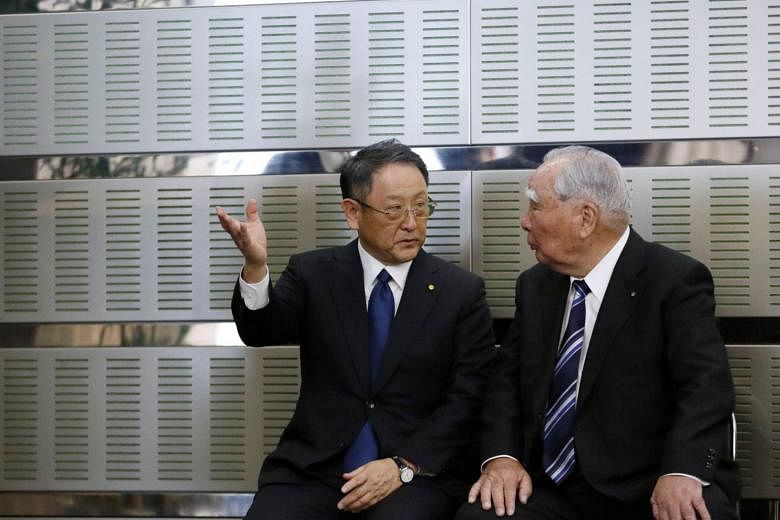TOKYO (THE YOMIURI SHIMBUN/ASIA NEWS NETWORK) - Formations of alliances between car makers have been expanding further.
Auto manufacturers are struggling for survival in an industry that has been undergoing radical change due to the accelerated development of next-generation technologies. They are being put to the test over the results of their strategies.
Toyota Motor Corp and Suzuki Motor Corp have reached an agreement on their capital tie-up.
They will conduct joint research on autonomous driving and electric vehicles (EV). The two firms, which already have a business tie-up, will bolster their relationship by holding a small amount of each other's equity.
Toyota has a competitive edge in electrification technology, including for hybrid vehicles (HVs), and Suzuki's forte is in compact car technology.
The success or failure of the capital tie-up will have a huge impact on parts makers as well. They are called on to enhance their competitive edge by making use of their strong points.
As environmental regulations have become stringent across the globe, the favourite among next-generation vehicles is said to be EVs, which discharge no carbon dioxide while running.
But the spread of EVs is being delayed mainly due to their high prices. HVs, which use engines and electric motors, are expected to take on a bridging role.
HVs only account for a small percentage of total new vehicle sales in the world, as demand for gasoline and diesel cars in emerging countries continues to be strong.
Toyota provides HV technology for Mazda Motor Corp and Subaru Corp with which it has capital tie-ups.
Toyota likely wants to boost HV sales through the capital tie-up with Suzuki, which has performed strongly in India.
Automakers must focus on research and development ahead of the full-scale arrival of the EV era, while securing immediate profits. Many challenges lie ahead, including enhancing the performance of HVs, lowering the price of EVs and improving safety technology.
To surmount these challenges, it is necessary to actively team up with rival firms and emerging information technology companies and thus gather together cutting-edge expertise. A broad perspective and flexibility are called for in corporate management.
As in the case of EVs, competition is fierce in the development of autonomous driving vehicles that utilise artificial intelligence.
This is because IT firms with plenty of funds, including Google and Apple of the United States, have been part of the competition.
It is hard for a company to cover huge development costs single-handedly.
This is the reason why business tie-ups were concluded between Daimler AG and BMW AG of Germany, Volkswagen AG of Germany and Ford Motor Co of the United States, and Honda Motor Co and General Motors Co of the United States.
Corporate culture differs from company to company. To make tie-ups prove fruitful, close communication and clarification of the division of roles will become important.
Government support to encourage private sector action is indispensable, too.
The Japanese and French governments have agreed to cooperate in helping next-generation technologies to prevail.
They will join hands to work out safety standards on self-driving as well as in the improvement of charging equipment.
The move is likely aimed at providing indirect support to the alliance of Nissan Motor Co and Renault SA of France. It is essential to promote such a step.
The Yomiuri Shimbun is a member of The Straits Times media partner Asia News Network, an alliance of 24 news media organisations.

